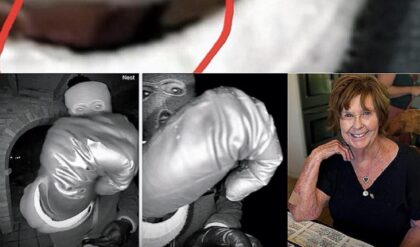
Cover Image Source: Getty Images| Photo by Emma McIntyre; (Inset): X | @wherearemysox42
Last year, Gwen Stefani’s assertion that she is Japanese, caused quite the stir. The remarks came in an interview with Allure magazine, as the pop star promoted her cosmetics line, Gxve. Stefani, an Italian American, spoke about the Japanese cultural influences on her childhood and how her father, who worked for Yamaha, traveled between Japan and California throughout her childhood.
 Image Source: Getty Images| Photo by Jeff Kravitz
Image Source: Getty Images| Photo by Jeff Kravitz
Stefani said, “That was my Japanese influence and that was a culture that was so rich with tradition, yet so futuristic [with] so much attention to art and detail and discipline and it was fascinating to me.” Stefani shared anecdotes about her father’s encounters with Japanese street performers who dressed like Elvis Presley and women with vibrant hair.
She went on to say that as an adult, she visited the Shibuya neighborhood of Tokyo known as Harajuku, which had a lot of unique clothing stores and cosplay shops. This experience inspired her fragrance line, Harajuku Lovers. She further told the outlet, “I said, ‘My God, I’m Japanese and I didn’t know it’. I am, you know.” As the conversation progressed, she asserted that she has ‘a little bit of an Orange County girl, a little bit of a Japanese girl, and a little bit of an English girl.’
The remarks drew immediate backlash online. An individual shared on X, “Claiming to be Japanese only demonstrates her ignorance of Japanese culture. If she was so immersed in the culture, she would know that she would always be a gain no matter how many times her father traveled back and forth to Japan.” In a similar vein, another penned, “My Dad’s field of study was Japanese History. He taught Japanese history for 25 years, then Japanese politics for the rest of his life. It never ONCE occurred to me to decide I was Japanese. It never occurred to my Dad to claim he was Japanese, either. Gwen S.”
The remarks also re-ignited the discussion on Stefani’s past cultural appropriation. An X user slammed, “Ugh, she actually had an excellent opportunity for a moment of growth and reflection to say, ‘My bad, what I did was harmful but now I understand I can appreciate Japanese culture without profiting off…appropriating it, and I shouldn’t have used Asian women like handbags.’”
In the 2000s, Stefani often made an effort to highlight her love of the Harajuku style. As reported by NBC News, she recruited four Japanese and Japanese-American dancers—Love, Angel, Music, and Baby—to perform in her music videos and during public appearances after the 2004 release of her album Love.Angel.Music.Baby. There were five perfume bottles in the Harajuku Lovers series, each one depicting a caricature of Stefani, or one of her backup dancers. The following year, in 2011, Stefani debuted her Harajuku Mini collection of childrenswear for Target.
During the Allure interview, addressing the past criticism, she opined, “If [people are] going to criticize me for being a fan of something beautiful and sharing that, then I just think that doesn’t feel right. I think it was a beautiful time of creativity…a time of the ping-pong match between Harajuku culture and American culture. [It] should be okay to be inspired by other cultures, because if we’re not allowed, then that’s dividing people, right?”

